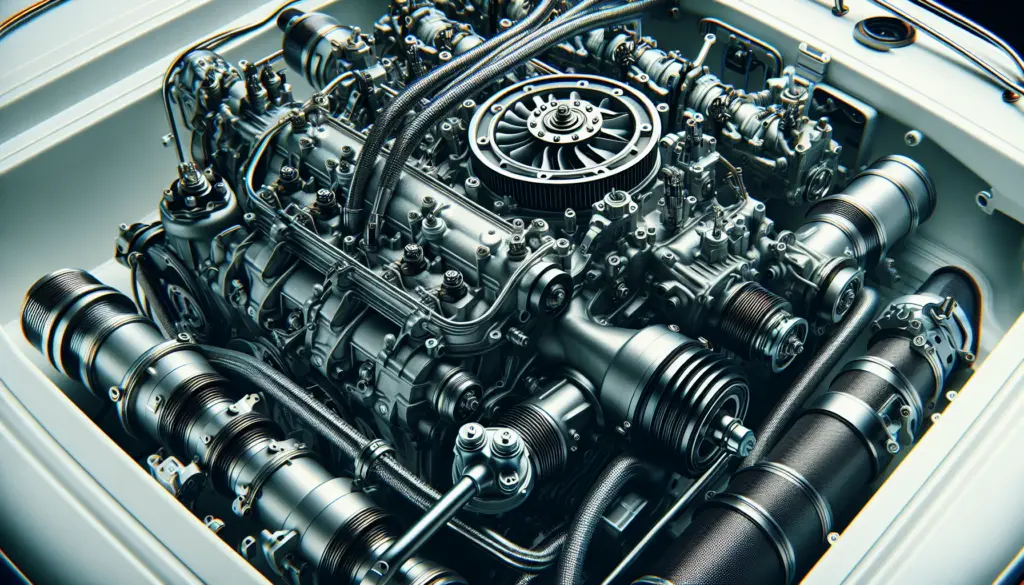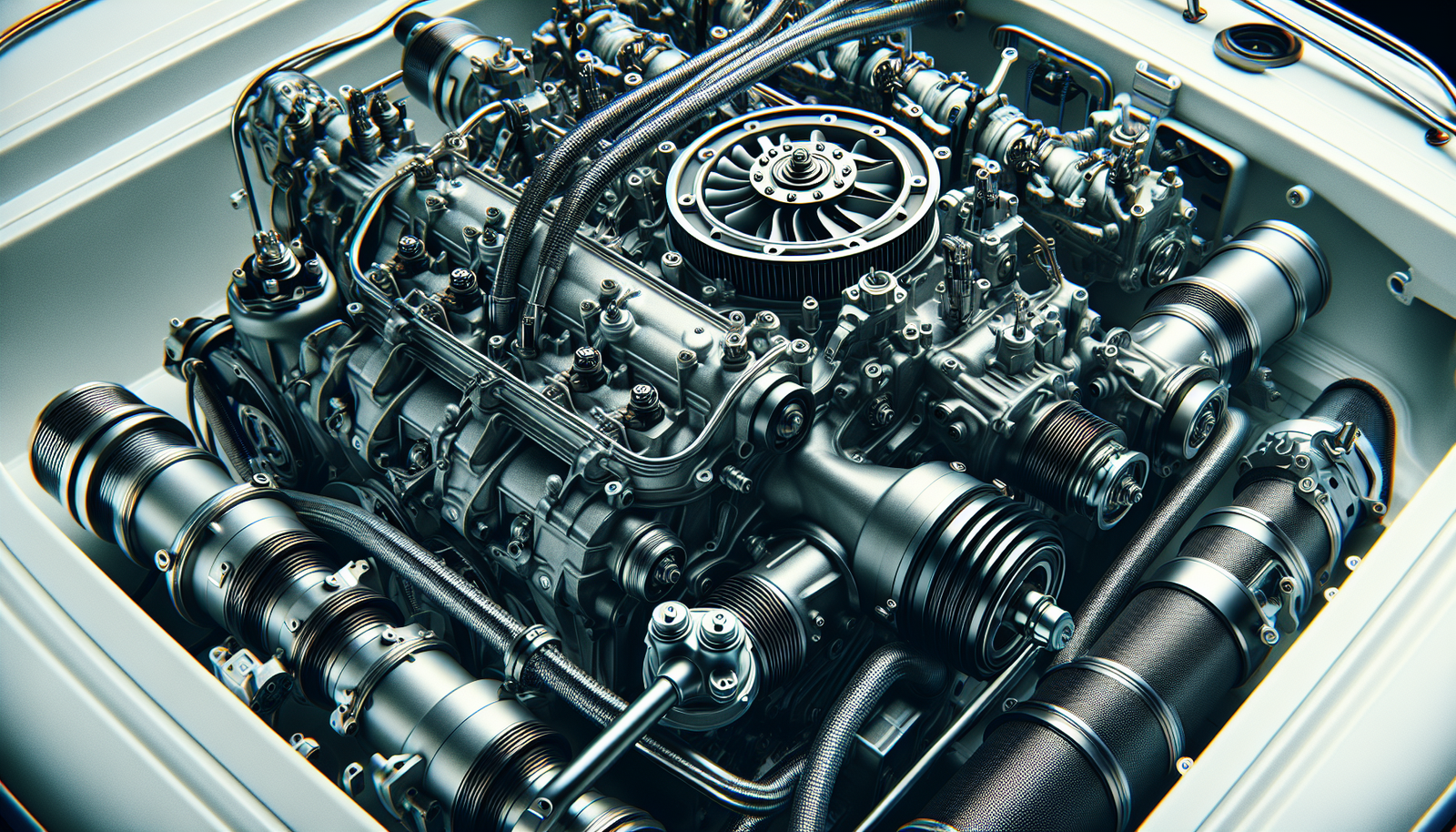You’ve spent all winter looking forward to getting out on the water, and now, finally, the day has arrived. However, the joy of your first summer boat ride is quickly doused as you notice your boat engine overheating even at idle speed. Fear not, this helpful guide titled “How to Troubleshoot Boat Engine Overheating at Idle Speed” is here to prepare you to combat such unfortunate situations with ease and confidence. You’ll learn about common causes of boat engine overheating problems and effective troubleshooting procedures to keep you sailing seamlessly all summer long.

Understanding Boat Engine Overheating
Having a basic understanding of boat engine overheating is crucial for every boat owner. Boat engine overheating can drastically impact the efficiency and lifespan of your boat. Just like any other mechanical system, boat engines are prone to overheating if certain conditions are not properly met. Overheating happens when the temperature in the engine becomes too high, affecting its performance. This can lead to irreversible damage if not attended to quickly.
Basic knowledge on boat engine overheating
Boat engine overheating often occurs when there’s an issue with the cooling system, lack of regular maintenance, or when there are mechanical faults. Boat engines are designed to function within a particular temperature range. If the engine works outside this range, it results in overheating which, over time, can cause issues like cylinder head warping, piston seizure or even total engine failure.
Common reasons for overheating
As for common reasons for overheating, these include a clogged radiator, a failing water pump, or thermostat problems. Other causes can include poor oil quality, air intake issues, and even problems with the boat’s electrical and fuel systems. In addition, loose or damaged belts and hoses can also cause your boat engine to overheat.
Early signs of overheating
It’s always better to catch issues early and this goes for recognizing signs of overheating as well. Keep an eye out for an increase in engine temperature, decreased engine performance, inefficiencies in the cooling system or the appearance of steam – these can all be indications of a potential problem. Your boat may also emit unusual noises or fumes, or your engine may stall. These are early warning signs, and if noticed, should prompt immediate inspection and servicing.
Role of Proper Engine Maintenance and Inspection
Effective prevention of boat engine overheating starts with regular maintenance and inspection.
Importance of regular engine maintenance
Regular engine maintenance keeps your boat in optimal condition, preventing unwanted issues like overheating. It involves checking and replacing crucial parts before they cause trouble. Some areas to focus on are the cooling components, oil, air intake system, fuel system, as well as belts and hoses. All are integral to proper engine functioning and when maintained, reduce chances of overheating.
How to inspect the engine
Inspecting a boat engine involves a keen understanding of your boat’s mechanics. You should closely pay attention to the engine’s temperature gauges, oil quality, various belts and hoses condition, the cooling system, and air intake system. Where possible, engage a professional service to provide thorough inspections and tackle issues that you might miss.
Routine checks to avoid overheating
regular visual checks for wear and tear, checking oil and coolant levels, and ensuring your belts and hoses are in good condition can be crucial routine measures. Regularly checking the operation of the thermostat and water pump will also help you prevent overheating problems before they escalate.
Evaluating the Cooling System
The cooling system is a key part of your boat engine and requires regular inspection.
Components of the cooling system
The cooling system is comprised of several components, including the radiator, water pump, coolant, and thermostat. All play vital roles in preventing your boat engine from overheating.
Significance of the cooling system
This system works to remove heat from the engine and maintain an optimal boat engine operating temperature. Without a working cooling system, your engine can quickly overheat, leading to significant and costly damages.
Detecting problems in the cooling system
Watch for signs such as a decrease in your coolant level, thermostat malfunctions, or a failing water pump. Each of these could indicate a need for repair or replacement to maintain a functioning cooling system.

Troublesome Thermostats and Their Adjustment
The thermostat in your boat engine is a small device with an outsized impact on your engine’s performance.
Function of the boat engine thermostat
The thermostat controls the engine temperature by regulating the amount of coolant flowing through the engine.
Issues due to a faulty thermostat
A faulty thermostat may stick in a closed position, restricting coolant flow and causing overheating. Or, it may stick open, which can cause the engine to run below normal operating temperatures and impact performance.
Adjusting and replacing the thermostat
Adjusting or replacing a faulty thermostat can help to resolve overheating issues. Regular inspections will help ensure your thermostat is working as it should.
The Engine’s Water Pump and Its Performance
The water pump plays a key role in preventing your boat’s engine from overheating.
The job of the water pump
This pump circulates coolant throughout the engine, helping to regulate its temperature.
Problems linked to a faulty water pump
A faulty water pump can result in inadequate coolant circulation and lead to engine overheating. This problem can be identified by leaks, rattling noises, or elevated engine temperatures.
Repairing or replacing a faulty water pump
Ensuring your water pump is in good condition and performing its job is vital. If it shows signs of failure, it should be repaired or replaced immediately.
Effect of Oil Levels and Quality on Overheating
Engine oil is an essential component that aids in preventing overheating.
Understanding the importance of engine oil
Engine oil plays an essential role in reducing friction between moving parts, thus reducing heat.
Impact of low or dirty oil on overheating
Low or dirty oil can contribute to overheating as it will not lubricate effectively and will increase internal engine temperature.
Tips for maintaining optimal oil levels and quality
Keep the oil topped up and ensure you use quality oil that is changed regularly, as per the manufacturer’s recommendation.
The Enigma of Engine Belts and Hoses
Belts and hoses are integral to the functioning of the boat engine.
The function of engine belts and hoses
Belts and hoses are crucial for various engine functions, including cooling, charging, and steering.
Problems that arise from damaged belts and hoses
Damaged or loose belts and hoses can affect the engine’s performance and even lead to overheating.
Replacing faulty belts and hoses
Closely examine belts and hoses during your regular maintenance checks. Replace any that are frayed, worn out, or loose.
Determining the Role of Air Intake Issues
The engine’s air intake plays a significant role in its performance and can cause overheating if blocked.
Role of air intake in the engine
The air intake supplies the engine with air, which is essential for combustion.
Troubles caused by air intake blockages
A blocked air intake can lead to unbalanced air-fuel mixture and inefficient combustion, leading to increased engine temperature and possible overheating.
Clearing up the air intake channel
Check your air filters and air-intake passages regularly for any signs of blockage. Clean or replace as necessary.
Possible Electrical and Fuel System Concerns
Issues related to the electrical and fuel system can also result in engine overheating.
Implication of electrical system in overheating
Faulty electrical components may interrupt engine processes and contribute to overheating.
Correlation between fuel system and overheating
Imbalances in fuel delivery by your fuel system could result in inefficient combustion, contributing to excessive heat production and overheating.
Dealing with fuel and electrical system issues
Regular checks and servicing can help to identify and address potential issues within these systems.
Dealing with Continual Overheating Issues
Even with thorough maintenance, some engines may still experience overheating.
Diagnosing persistent overheating problems
Persistent overheating issues could be due to complex factors like engine design flaws. A professional diagnosis is needed to conclude the underlying issue.
Professional help for continuous overheating
When standard troubleshooting doesn’t resolve the issue, engaging a professional marine mechanic might be necessary to identify and fix the problem.
Preventive measures to keep the engine from overheating at idle speed
Adopt preventive measures such as avoiding extended idling time, using good quality oil, keeping the engine and its components clean, and ensuring proper air flow, especially when your boat is at idle speed. Regular maintenance checks are also helpful in identifying and resolving potential overheating issues.
In conclusion, understanding the basics of boat engine overheating, knowing the early signs, and adapting the right preventive measures can save you from expensive, disruptive breakdowns, and prolong your boating enjoyment.

